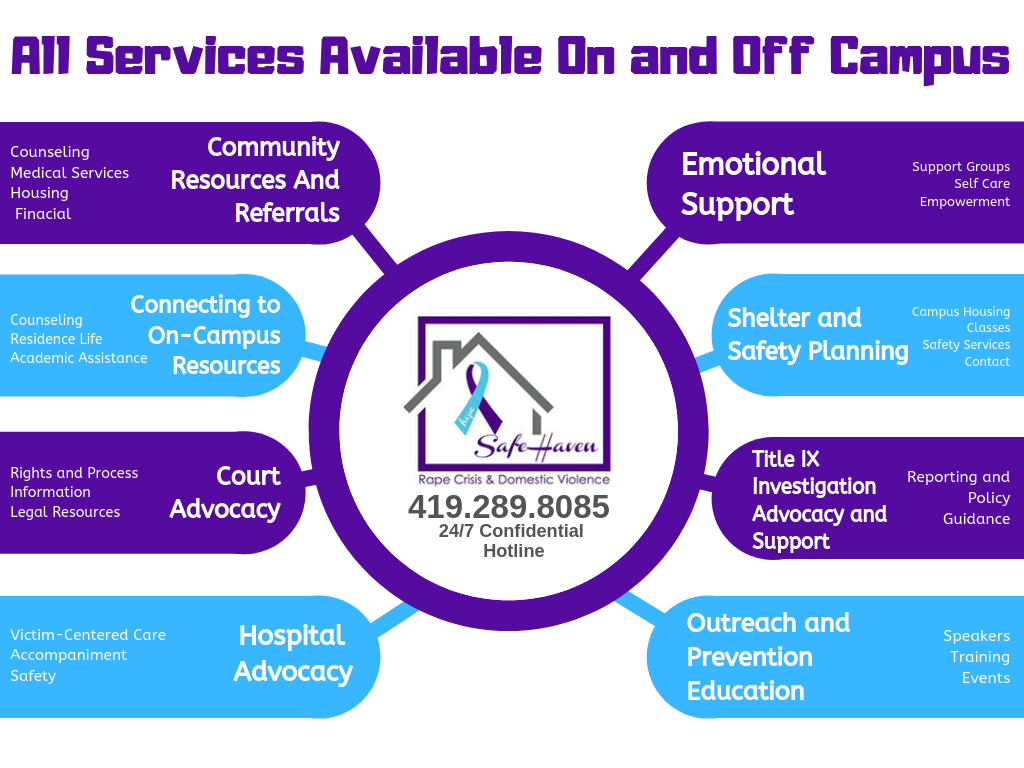College campuses can give you a sense of security—a feeling that everyone knows each other and watches out for one another. There are perpetrators who take advantage of this feeling of safety and security to commit acts of sexual violence.
We can all take steps to increase safety on college campuses. As bystanders, students can learn ways of stepping in to prevent crimes like sexual assault from occurring. When it comes to personal safety, there are steps you can take as well, and some of those tips are outlined below. No tips can absolutely guarantee safety—sexual violence can happen to anyone, and it’s not the only crime that can occur on a college campus. It’s important to remember that if you are sexually assaulted on campus it is not your fault—help and support are available.
Increasing On-Campus Safety
The following tips may reduce your risk for many different types of crimes, including sexual violence.
- Know your resources. Who should you contact if you or a friend needs help? Where should you go? Locate resources such as the campus health center, campus police station, and a local sexual assault service provider. Notice where emergency phones are located on campus, and program the campus security number into your cell phone for easy access.
- Stay alert. When you’re moving around on campus or in the surrounding neighborhood, be aware of your surroundings. Consider inviting a friend to join you or asking campus security for an escort. If you’re alone, only use headphones in one ear to stay aware of your surroundings.
- Be careful about posting your location. Many social media sites, like Facebook and Foursquare, use geolocation to publicly share your location. Consider disabling this function and reviewing other social media settings.
- Make others earn your trust. A college environment can foster a false sense of security. They may feel like fast friends, but give people time earn your trust before relying on them.
- Think about an Alternative Plan. Spend some time thinking about back-up plans for potentially sticky situations. If your phone dies, do you have a few numbers memorized to get help? Do you have emergency cash in case you can’t use a credit card? Do you have the address to your dorm or college memorized? If you drive, is there a spare key hidden, gas in your car, and a set of jumper cables?
- Be secure. Lock your door and windows when you’re asleep and when you leave the room. If people constantly prop open the main door to the dorm or apartment, tell security or a trusted authority figure.
Source: Rape, Abuse, & Incest National Network







